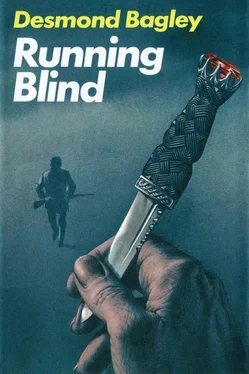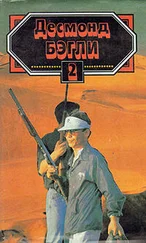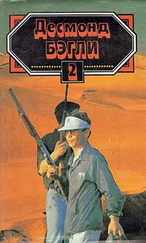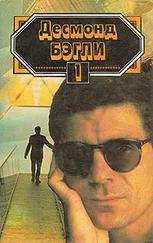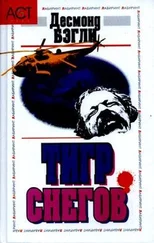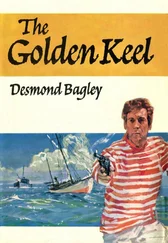My finger painfully took up the final pressure and the butt of the rifle jolted my shoulder and Slade’s nemesis streaked towards him at 2,000 miles an hour. The distant figure jerked like a marionette with suddenly cut strings, toppled over, and disappeared from sight.
I rolled over as the roaring in my ears increased. The dizziness built up again and the recurring waves of greyness turned to black. I saw the sun glowing redly through the darkness and then I passed out, the last thing I heard being Elin’s voice crying my name.
‘It was a deception operation,’ said Taggart.
I was lying in a hospital bed in Keflavik and there was a guard on the door, not so much to keep me imprisoned as to shield me from prying eyes. I was a potential cause célābre, a casus belli and all those other foreign phrases which the leader writers of The Times trot out so readily in moments of crisis, and all attempts were being made to keep the situation potential and to prevent it from becoming actual. All parties concerned wanted the whole thing hushed up, and if the Icelandic government knew what had been going on they were damned careful not to say so.
Taggart was with another man, an American, whom he introduced as Arthur Ryan. I recognized Ryan; the last time I had seen him was through the sights of Fleet’s rifle — he had been standing beside a helicopter on the other side of Búdarháls ridge.
It was the second time they had come to see me. The first time I was drowsy with dope and not very coherent, but still coherent enough to ask two questions.
‘How’s Elin?’
‘She’s all right,’ said Taggart soothingly. ‘In better shape than you are, as a matter of fact.’ He told me that the bullet had been a ricochet and had the force taken out of it; it had just penetrated the flesh and lodged between two ribs. ‘She’s as right as rain,’ said Taggart heartily.
I looked at him with dislike but I was too wobbly to push it then. I said, ‘How did I get here?’
Taggart glanced at Ryan who took a pipe from his pocket, looked at it uncertainly, and then put it away again. He said in a slow voice, ‘That’s quite a girl you have, Mr Stewart.’
‘What happened?’
‘Well, when you passed out she didn’t know what to do. She thought about it a bit, then she loaded the rifle and started to put even more holes into that house.’
I thought of Elin’s attitude towards killing. ‘Did she hit anyone?’
‘I guess not,’ said Ryan. ‘I think you did most of the damage. She shot off all the ammunition — and there was a hell of a lot of it — and then she waited a while to see what would happen. Nothing did, so she stood up and walked into the house. I think that was a very brave thing to do, Mr Stewart.’
I thought so too.
Ryan said, ‘She found the telephone and rang the Base, here, and contacted Commander Nordlinger. She was very forceful and got him really stirred up. He got even more stirred up when the phone went dead.’ He grimaced. ‘It’s not surprising she fainted — that place was like a slaughterhouse. Five dead and two badly wounded.’
‘Three wounded,’ said Taggart. ‘We found Slade afterwards.’
Soon after that they went away because I was in no shape for serious conversation, but twenty-four hours later they were back and Taggart was talking about deception.
‘When can I see Elin?’ I said abruptly.
This afternoon,’ said Taggart. ‘She’s quite all right, you know.’
I looked at him stonily. ‘She’d better be.’
He gave an embarrassed cough. ‘Don’t you want to know what it was all about?’
‘Yes,’ I said. ‘I would. I’d certainly like to know why the Department did its damnedest to get me killed.’ I switched my eyes to Ryan. ‘Even to the extent of getting the cooperation of the CIA.’
‘As I say, it was a deception operation, a scheme cooked up by a couple of American scientists.’ Taggart rubbed his chin. ‘Have you ever considered The Times crossword puzzle?’
‘For God’s sake!’ I said. ‘No, I haven’t.’
Taggart smiled. ‘Let us assume it takes some maniacal genius eight hours to compile it; then it has to be set up in type, a block made, and printed in the paper. This involves quite a few people for a short time. Let us say that a total of forty man-hours is used up in this way — one working man-week.’
‘So?’
‘So consider the consumer end of the operation. Let’s assume that ten thousand readers of The Times apply their brain power to working out the damned thing — and that each one takes an hour. That’s ten thousand hours — five man-years. You see the implication? One man-week of labour has tied up five man-years of brain power in totally unproductive activity.’ He looked at Ryan. ‘I think you can take it from there.’
Ryan had a low, even voice. ‘There are a lot of discoveries made in the physical sciences which have no immediate application, or any conceivable application, for that matter. One example is silly putty. Have you ever seen the stuff?’
‘I’ve heard of it,’ I said, wondering what they were getting at. ‘I’ve never seen it.’
‘It’s funny stuff,’ said Ryan. ‘You can mould it like putty, but if you leave it alone it flows like water. Furthermore, if you hit it with a hammer it shatters like glass. You’d think that a substance with such diverse properties would be useful, but so far no one has thought of a single goddamn thing to do with it.’
‘I believe they’re now putting it into the middle of golf balls,’ offered Taggart.
‘Yeah, a real technological breakthrough,’ said Ryan ironically. ‘In electronics there are quite a few effects like that. The electret, for example, carries a permanent electric charge like a magnet carries a magnetic field. That idea has been around for forty years and only now has a use been found for it. When the scientists began to kick the quantum theory around they came up with any number of odd effects — the tunnel diode, the Josephson effects, and a lot more — some of them usable and some not. A fair number of these discoveries have been made in laboratories working on defence contracts and they’re not generally known.’
He shifted uneasily in his chair. ‘Mind if I smoke?’
‘Go ahead.’
Thankfully he took out his pipe and began to fill it. ‘One scientist, a guy called Davies, surveyed the field and came up with an idea. As a scientist he’s not very bright — certainly not of the first rank — but his idea was bright enough even if he merely intended it as a practical joke. He figured it was possible to put together an electronic package, utilizing a number of these mysterious but unusable effects, which would baffle a really big brain. In fact, he did put together such a package, and it took five top research men at Caltech six weeks to discover they’d been fooled.’
I began to get the drift. ‘The deception operation.’
Ryan nodded. ‘One of the men who was fooled was a Dr Atholl, and he saw possibilities in it. He wrote a letter to someone important and in due course the letter was passed on to us. One of the sentences in that letter is outstanding — Dr Atholl said this was a concrete example of the aphorism: “Any fool can ask a question which the wisest of men cannot answer.” Davies’s original package was relatively unsophisticated, but what we finally came up with was really complex — and it was designed to do precisely nothing.’
I thought of how Lee Nordlinger had been baffled and began to smile. ‘What are you laughing at?’ asked Taggart.
‘Nothing much. Carry on.’
Taggart said, ‘You see the principle, Stewart; it’s just like The Times crossword. The design of the package didn’t take much brain power — three scientists worked on it for a year. But if we could get it into the hands of the Russians it could tie up some of their finest minds for a hell of a long time. And the joke is that the problem was fundamentally unsolvable — there was no answer.’
Читать дальше
Конец ознакомительного отрывка
Купить книгу
